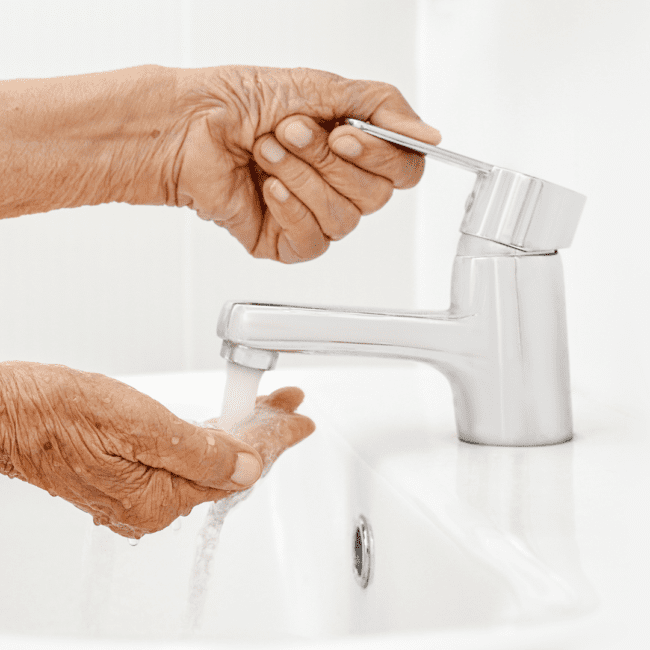For many older adults, home isn’t just a place, it’s a feeling. The smell of familiar spices in the kitchen, the neighbour who waves from across the road, the shelf lined with memories and framed photographs. So when the time comes to consider how best to support a loved one as they age, ageing at home is often the first, and most heartfelt, choice.
But while the idea of growing older in one’s own space sounds comforting, it also comes with responsibilities and adjustments, especially for caregivers. If you’re wondering how to help your parent or older relative stay safe, healthy, and happy at home, this guide is for you.
Why Ageing at Home Matters
Home offers comfort, dignity, and control, three things that are especially important as we grow older. Most seniors prefer the familiarity of their own home over the idea of a care facility. And with the right planning, ageing at home can be not only possible, but deeply enriching.
For you, the caregiver, this choice also means finding a balance between supporting independence and ensuring safety.
Key Aspects of Ageing Well at Home
Let’s break it down into manageable areas. As a caregiver, focusing on these pillars can make home-based ageing smoother for both you and your loved one.
1. Safety First: Preventing Accidents at Home
Even the most well-kept homes can hide fall risks or hazards for older adults.
What you can do:
Worried about your Elderly parents back home?
Call us today to arrange Care Like Son and Daughter™.
- Install grab bars in bathrooms and near stairs
- Remove loose rugs and clear cluttered pathways
- Ensure lighting is bright and motion-activated if possible
- Use non-slip mats in wet areas
Tip: A simple home safety assessment can reveal practical changes that reduce risk without making the house feel clinical.
2. Health Monitoring and Daily Care
At home doesn’t mean without healthcare. Proactive medical care is key to ageing safely at home.
What to consider:
- Schedule regular medical check-ups (in-person or teleconsultations)
- Keep a log of medications, symptoms, and doctor’s advice
- Consider hiring a visiting nurse or physiotherapist, if needed
- Track changes in appetite, sleep, and movement
Remember: Small health changes can signal something deeper, and early attention often prevents complications.
3. Daily Activities and Independence
One of the biggest joys of ageing at home is the ability to go about familiar routines. But those routines may need adjusting.
As a caregiver, you can:
- Help with grocery shopping, banking, and errands
- Encourage light daily movement; walking, gardening, stretching
- Break down tasks into smaller steps without taking control entirely
- Use assistive tools (walking sticks, raised toilet seats, etc.)
The goal is to support without overshadowing, allowing your loved one to feel capable, not dependent.
4. Social and Emotional Wellbeing
Isolation can creep in quietly when someone spends most of their time at home. Staying connected is essential for mental and emotional health.
Ways to help:
- Arrange weekly visits or video calls with family and friends
- Connect them with senior clubs, religious groups, or hobby circles
- Encourage storytelling, music, or reading as daily joys
- If they’re comfortable, introduce them to simple tech for entertainment or chatting
Sometimes, just having a conversation over a cup of tea can lift spirits more than we realise.
5. Nutrition and Hydration
Simple meals are fine, but they should still be nutritious.
Support by:
- Planning easy-to-cook, balanced meals
- Stocking the fridge with ready-made healthy snacks (cut fruit, boiled eggs, khichdi, etc.)
- Monitoring water intake, especially in hot weather
- Consulting a dietitian if there are special conditions like diabetes or hypertension
Food is also comfort, respect their preferences while gently guiding better choices.
6. When to Ask for Help
Caring for someone at home doesn’t mean doing it all by yourself.
Consider external support when:
- Your parents’ needs are growing beyond your capacity
- You live in a different city or country
- You’re feeling stretched emotionally or physically
- They need specialised services like dementia care, physiotherapy, or palliative support
Help can come in many forms: a part-time nurse, a home aide, a telemedicine subscription, or a trusted elder care service like Samarth.
The Heart of It All: Home Is a Feeling
Helping your parent age at home is not just about managing tasks; it’s about preserving dignity, routine, and peace of mind. It takes patience, planning, and love.
Your presence, whether near or from afar, can make their everyday life feel secure and cherished. And when you share responsibilities, seek guidance, and adapt together, ageing at home becomes not just practical, but truly meaningful.
Need Help Making Home a Safe Haven?
At Samarth, we specialise in personalised, compassionate support for older adults who choose to age at home. From safety assessments and caregiver support to telehealth and nutrition planning, we’re here for families like yours.
👉 Explore Samarth’s At-Home Services







